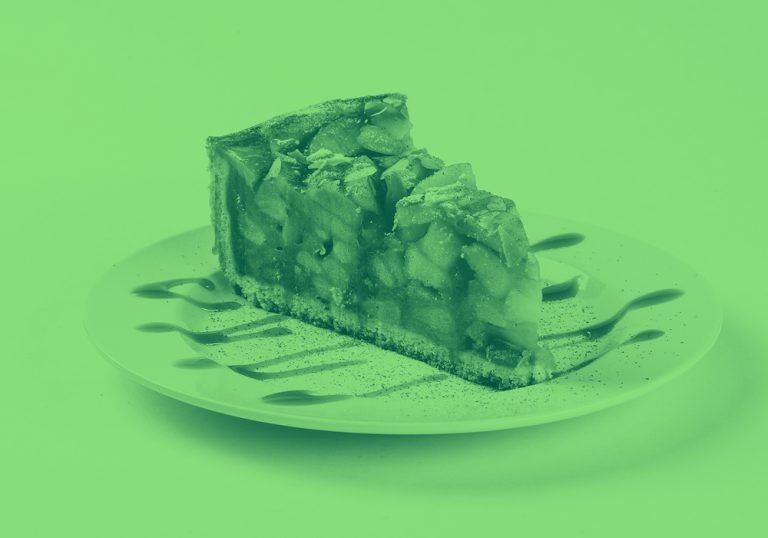“Pie” vs. “Cake”: What’s Baked Into Their Delicious Differences?

March 14 is a day to think about a specific number: pi. Pi has the same first three digits as the date 3/14—at least when written in the American style, with the month before the day. It’s also a day that people like to indulge in pie, a homophone with a completely different meaning.
Pi goes on for much longer than 3.14, of course. And you know what feels like it’s as long as the never-ending digits in pi? The delicious debate over the difference between a cake and a pie.
There are cake people and there are pie people in this world. We’re not here to tell you which is better (correct answer: they are both equally tasty), but we can serve up a slice of what makes a cake different from a pie. Yes, that includes why some pies are savory rather than sweet.
What is pie?
Pie is defined as a baked food in a pastry-lined pan or dish that has a fruit, meat, pudding, or other filling, and it often also has a pastry crust on top.
The word was first recorded in 1275–1325 and comes from Middle English. It’s not exactly easy as pie to nail down how the word came to refer to the food we love, but it’s believed that it comes from magpie—yes, as in the bird. As the thinking goes, magpies will collect whatever catches their eye, and people will put just about anything edible into a pie.
There are fruit pies, which are the most common in the United States, but also chicken pot pies, savory pies, and meat pies. Parts of England and Italy are famous for their fish pies and countries in the Levant are known for their sfiha meat pies made with beef or mutton, spices, and labneh—a soft cheese. Meat pies made with mutton, beef, or pork are also common in the UK and some of the countries that were former British colonies like Australia (think Shepherd’s pie or small, portable hand pies).
Despite the many variations, these pies have something in common: a crust on top. But that’s not always the case for foods that get the pie label. Take, for example, pizza pie. This phrase is common in the US (especially the East Coast) and references to pizza pie can be found going back to the 1800s. A pizza’s construction is similar to a pie without a crust on top, and the definition for pizza is “a flat, open-faced baked pie of Italian origin.”
What is cake?
A cake is “a sweet, baked, breadlike food, made with or without shortening, and usually containing flour, sugar, baking powder or soda, eggs, and liquid flavoring.”
Unlike pies, cakes have sweetness built into the definition. Instead of fruit, meat, or pudding, cakes are defined by ingredients like flour, sugar, eggs, and baking powder or soda. Cakes also lack the pastry crust topping common to various types of pie.
Conversations about the word cake often draw questions about what gets included in the category and what doesn’t, just like pie. There are a number of types of cake, like fruitcake (which has dried or candied fruit), angel food cake (a type of porous sponge cake), and even cookie cake (a cookie that’s the size of a cake). Pancakes fall into the category as well since they have all the proper components, even if they’re a little flatter than your birthday cakes. And then there’s cheesecake, which has some of the qualities that make a cake a cake, though whether it’s a true cake is debated.
All this talk about cakes might lead you to think of muffins and the difference between the two. The English language is full of these types of debates about food names. It almost feels like it’s easier to crunch out the first 100 digits of pi than to dip your toes into the much debated etymology of baked goods.